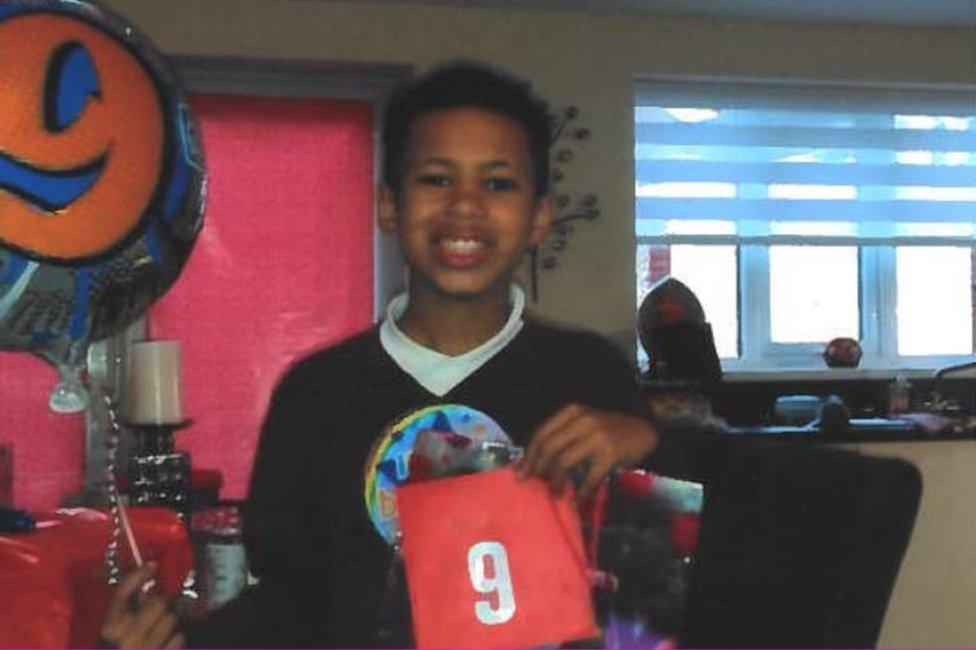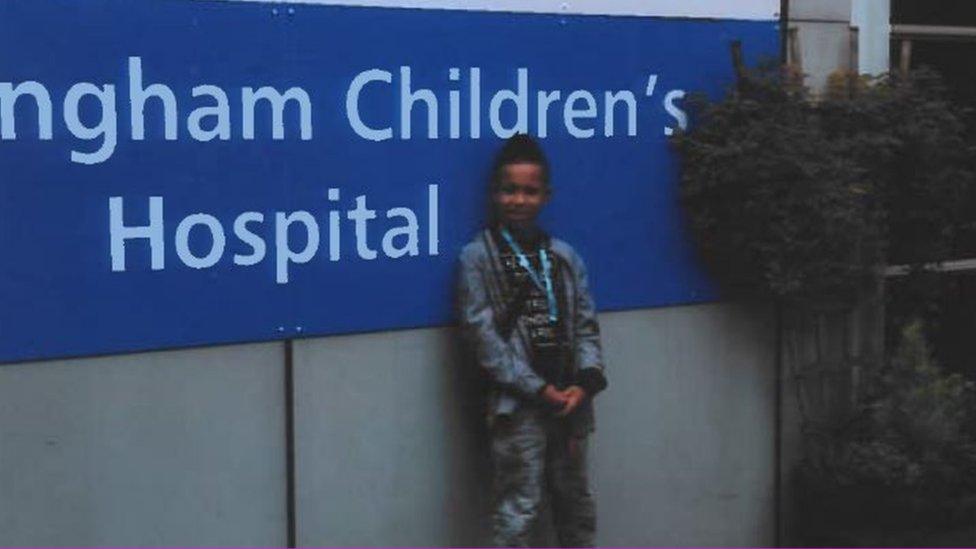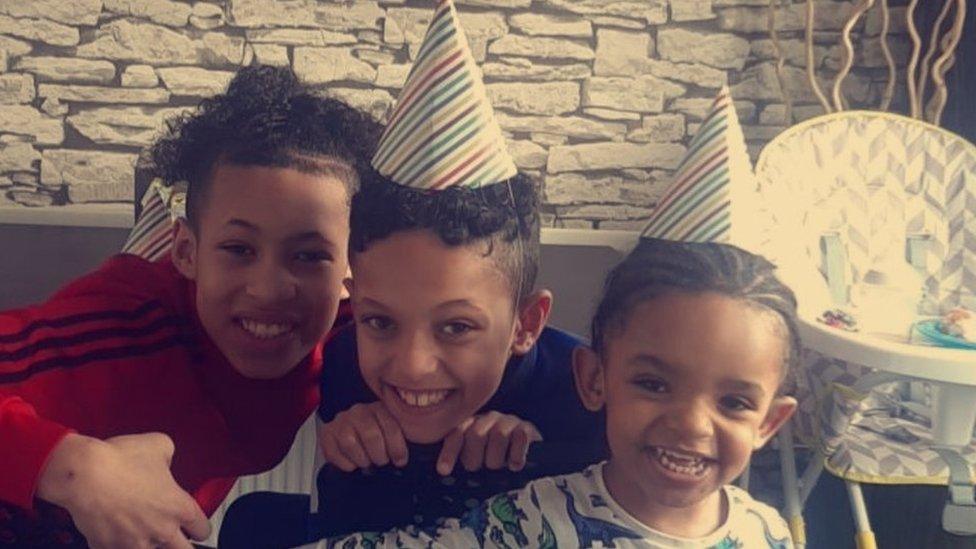Kellum Thomas: Battery ran out in device to monitor boy's heart
- Published

Kellum Thomas first had a cardiac arrest in 2016, when he was aged eight
A coroner has raised concerns about the medical care of a 13-year-old boy who died after having a cardiac arrest.
Kellum Thomas, who died in Nottingham on 9 June 2021, had a device fitted to monitor his heart after having a previous cardiac arrest in 2016.
However, his inquest heard that the device was not working for 17 months, because the battery had run out.
Kellum's medication should also have been doubled, but was not, because of a three-month delay sending a letter.
Coroner Dr Elizabeth Didcock said that while these issues did not cause or contribute to Kellum's death, she was concerned about them.
"I am very concerned about the issues raised at this hearing regarding capacity, lack of robust systems and waiting times," she said.
She intends to send a Prevention of Future Deaths report to the chief executive of Birmingham Children's Hospital, where Kellum had been treated.
Family want changes
Kellum's family now hope the hospital will change its procedures.
"The main thing to take from today is it hopefully benefits other children and parents," said Kellum's father, Perris Thomas.
Kellum's maternal grandmother, Kerry Garde, said she was particularly concerned about the three-month delay in getting a new prescription.
The inquest heard Kellum was seen at Birmingham Children's Hospital in March 2021, and was told his medication needed to be doubled. However, a letter about this was not received by Kellum's GP until 16 June 2021 - seven days after his death.
"I hope they speed up the processes for medication," Kellum's grandmother said. "If a cardiologist can write a prescription why can't they write it there and then?"
In a statement to the BBC, the hospital trust said it was addressing the coroner's concerns "as a matter of urgency".

Kellum was treated at Birmingham Children's Hospital
Kellum first had a cardiac arrest on 11 July 2016, when he was getting out of a swimming pool, and was successfully resuscitated by a lifeguard.
In August 2016 he was fitted with a device known as a Reveal Linq to monitor his heart rhythm.
The device showed that Kellum had brief arrhythmias, where his heart sometimes had clusters of extra beats.
However, the device stopped working on 19 September 2019 because the battery was dead, and a new one was not fitted until 16 February 2021.
This meant there was no data from the device for 17 months, so doctors do not know whether or not there were any significant rhythm abnormalities during this time period.
'Not urgent'
Kellum's uncle, Karl Thomas, asked Dr Vinay Bhole, the consultant paediatric cardiologist who treated Kellum at Birmingham Children's Hospital, why the device was not replaced sooner.
Dr Bhole said this was partly due to the Covid-19 pandemic and also said: "I think it's to do with capacity, because we have one person doing this type of procedure in the Midlands."
Mr Thomas replied: "For me, I don't think that's an acceptable answer.
"What we want to establish is this is not going to happen to some other young boy, so we've got to have systems in place to prevent that."
When asked about this by the coroner, Dr Bhole said Kellum had been "on the list" for getting a new device but it was not classified as an "urgent procedure".

Kellum (left), here with his brothers, was a loving boy, his mother said
The inquest heard Kellum had been well on the day of his death, had played football with a friend, then come home.
His mother, Jodie Wilson, found him slumped and unresponsive in the bathroom and started CPR.
Paramedics took him to the Queen's Medical Centre in Nottingham, where he was pronounced dead, surrounded by his family.
His cause of death was recorded by the coroner as:
1a) Sudden cardiac death in childhood
1b) Catecholaminergic polymorphic ventricular tachycardia (CPVT)
CPVT is the condition that Kellum is thought to have had. He was not diagnosed with this while he was alive, but the coroner said he had it on the balance of probabilities.
'Truly sorry'
Birmingham Women's and Children's NHS Foundation Trust has 56 days to respond to the coroner to set out how it will address her concerns.
Dr Fiona Reynolds, chief medical officer at the trust, said in a statement to the BBC: "We offer our sincerest condolences to the family at the tragic loss of Kellum.
"Although the inquest found the issues highlighted did not contribute to Kellum's death it is clear the standards of care did not meet those that we and families expect. We are truly sorry for this.
"The trust will respond to the coroner to share what we are doing to address these issues as a matter of urgency."

Follow BBC East Midlands on Facebook, external, Twitter, external, or Instagram, external. Send your story ideas to eastmidsnews@bbc.co.uk, external.
Related topics
- Published19 June 2021
